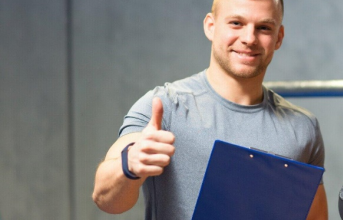How Progressive Muscle Relaxation Can Transform Your Sleep Quality

Tight muscles and stress can make it hard to fall asleep. When your body stays tense, your mind stays active. Progressive Muscle Relaxation (PMR) helps calm your body and mind so you can sleep better.
What Is Progressive Muscle Relaxation?
PMR is a simple way to help your body relax. You tense each muscle group for a few seconds, then let it go. This process trains your body to feel the difference between tight and loose muscles.
You start from your toes and move up to your head. The goal is to feel calm and at ease. Over time, this helps your body relax faster before sleep.
Why Stress Hurts Sleep
Stress makes your muscles tight. Even when you lie in bed, your body stays on alert. This tension makes it harder to fall asleep and stay asleep.
One way to lower tension is through massage therapy. Massage can ease sore muscles, reduce stress, and help your body feel ready for rest. Pairing it with PMR gives even better results at night.
How PMR Improves Sleep
PMR helps your body slow down. You breathe slower, your heart rate drops, and you feel more peaceful. This makes it easier to fall asleep and sleep longer.
It also helps with muscle pain. As you release tension, you feel more relaxed. Over time, your body learns to respond faster to bedtime routines. It’s a simple, natural way to improve sleep.
A Simple PMR Routine You Can Try
You can do PMR in bed or on a soft mat. Make sure the room is quiet and dim.
- Start with deep breaths. Breathe in slowly through your nose, out through your mouth. Do this for a few minutes.
- Tense your toes. Hold for five seconds, then relax. Notice how your muscles feel after letting go.
- Move up your body. Do the same with your legs, stomach, chest, arms, hands, neck, and face. Tighten and relax each part.
- End with calm breathing. After finishing, lie still and take slow breaths. Let your body stay relaxed.
How Weight Loss and Obesity Treatment Help You Stick to PMR
Excess weight can make it harder to sleep well. It may cause pain or breathing problems at night. Feeling better in your body makes it easier to relax.
How Clinics offers Weight Loss and Obesity Treatment that supports better sleep. As your body feels lighter and stronger, PMR becomes easier to practice. Less tension means better rest at night.
Other Ways to Support PMR
PMR works even better when paired with calming habits. These simple changes can help you fall asleep faster.
Gentle stretches or breathing exercises relax your body. They make it easier to stay calm. If you’re dealing with injury or long-term pain, Kitchener physiotherapy can also help. It eases pain and supports your body’s healing, so sleep becomes more restful.
Tips to Make PMR a Habit
The more often you do PMR, the more your body gets used to relaxing. These tips can help you stay on track.
- Keep a set bedtime. Going to bed at the same time every night helps your body prepare for sleep. PMR fits well into this routine.
- Use a voice guide. Listening to someone talk you through PMR keeps you focused. It also helps your mind stay quiet.
- Write down your sleep. A short note about how you slept can help you see patterns. You’ll also see how PMR helps over time.
- Make your room restful. A dark, quiet space helps your body relax. Keep it cool and turn off screens.
Good sleep helps your body heal, your mind think clearly, and your mood stay steady. PMR is a simple habit that helps you relax deeply before bed. When your muscles let go, your mind follows.
It doesn’t cost anything, and it only takes a few minutes. When you do it every night, it becomes easier to fall asleep and stay asleep. Over time, this small change can make a big difference in how you feel.



